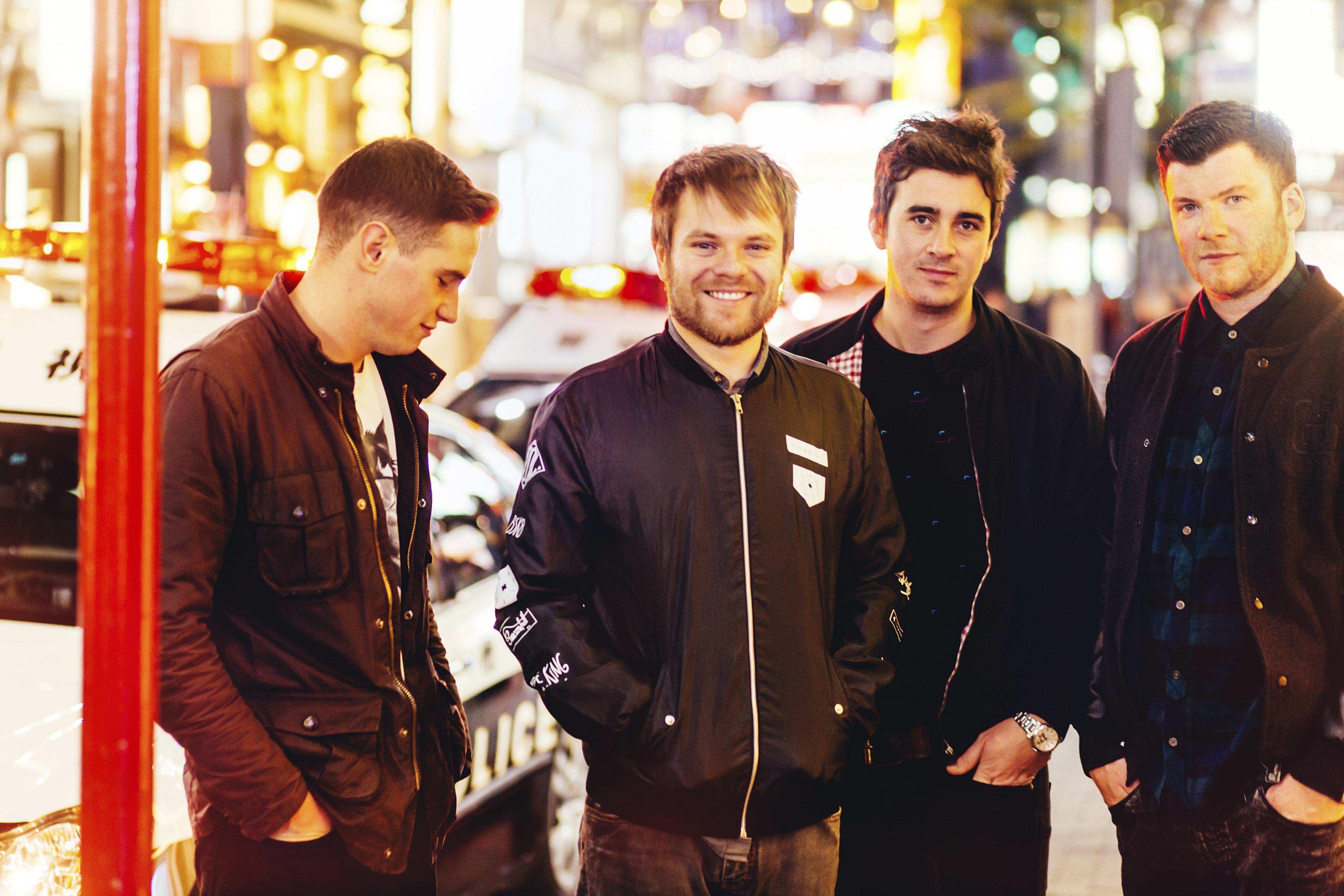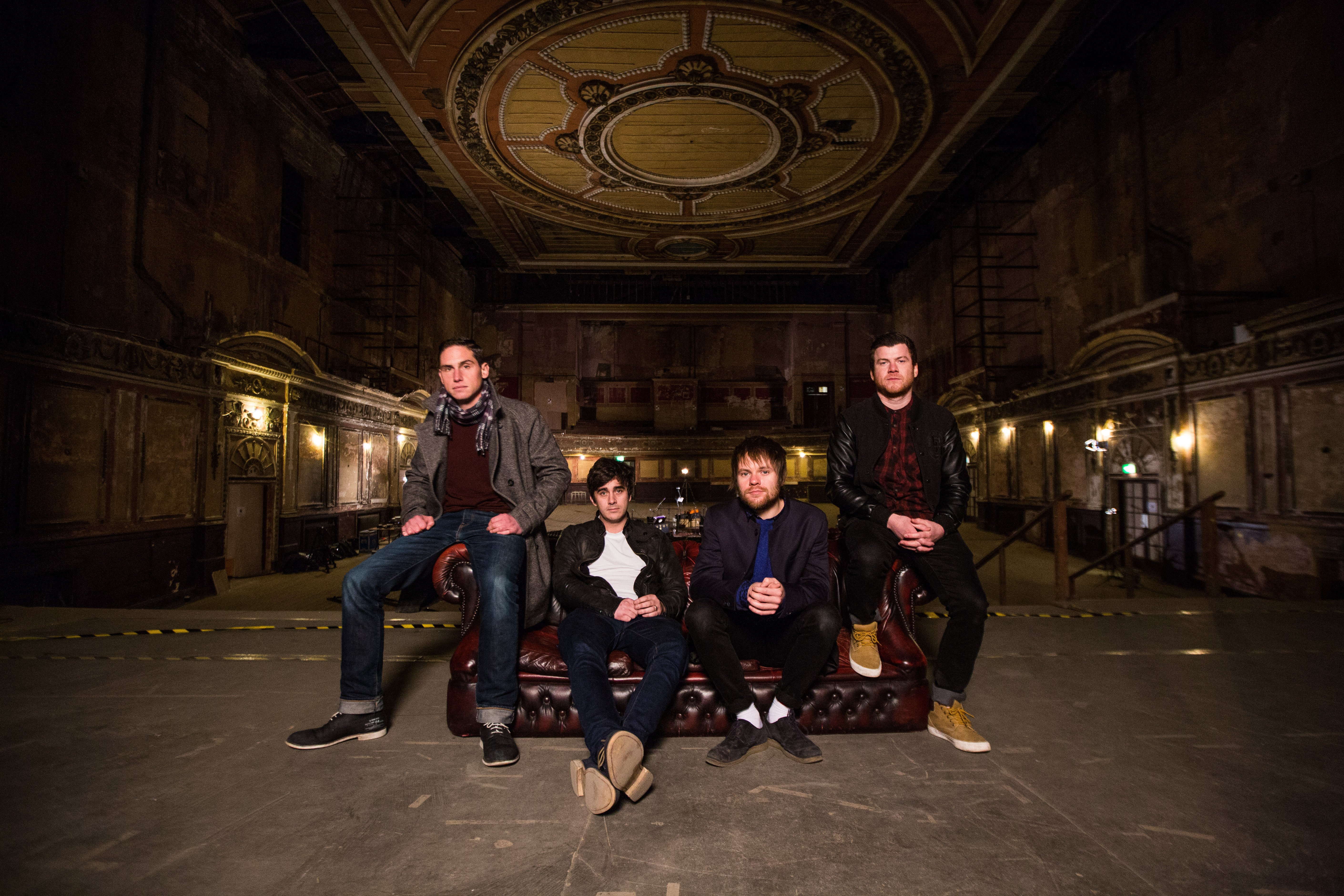
The wonderful thing about music is that it celebrates this kind of shared vulnerability.”
As an introvert, one of the hardest things for me to do is talk to new people. Usually, if I’m at a loss for words, I fall back on one of my favorite topics: music. Of course, trading opinions on the music industry is a little more nerve-wracking when the person you’re talking to happens to be the lead singer of an internationally known band. But when I confess to Enter Shikari’s Rou Reynolds that this is my first interview, he chuckles. “I used to get so nervous,” he says, “which feels very strange now because it’s just like talking to someone”. He has a point, and our conversation is pretty relaxed for the rest of the call, even with the time difference (it’s evening where he is and just past lunch for me).
“People can easily tell if the music doesn’t have that sense of excitement when it was being made,” explains Reynolds, jokingly comparing being confined to one genre as a “dictatorship”. While they still respect their fanbase, they enjoy making the music they want to make.
The band has just finished their biggest headlining tour in the UK and Europe, and are gearing up for the North American leg with the “nice chaps” in Hands Like Houses. Despite the difference in venue sizes, the band has always been lucky when it comes to fans’ attendance at shows. “It feels consistent”, says Reynolds. “Obviously it would suck if we played and no one gave a shit…but it’s cool that we tend to avoid indifference.” For the most part, Shikari fans are a die-hard bunch; the band can usually be found hanging out after shows by the merch table or the bar, talking to people who are passionate about the music they play.
For Enter Shikari, that sense of community is important. “The wonderful thing about music is that it celebrates this kind of shared vulnerability,” Reynolds muses. “Music can dictate what we’re feeling. It can completely change our perception on things.” They would know–their music contains so many elements that it’s impossible to constrict them to one genre. The band doesn’t mind though; for them, genres are a convenient word or two you can use when describing a new band to a friend, but are ultimately a limitation. When fans start to expect a band to stick to a particular genre, there’s a sense of pressure which affects the final product. “People can easily tell if the music doesn’t have that sense of excitement when it was being made,” explains Reynolds, jokingly comparing being confined to one genre as a “dictatorship”. While they still respect their fanbase, they enjoy making the music they want to make.
…they headed into a derelict wing on the east side of the venue, a “hipster-esque” room where they recorded a handful of songs.
Which is one of the reasons why they followed up their fourth album, The Mindsweep, with The Mindsweep: Hospitalised last fall. For their first remix album, the band worked with London’s drum-and-bass label Hospital Records, whose diverse roster was a big selling point. A lot of their releases are really melodic and influenced by classical music “so you have these beautiful sweeping euphoric strings and brass,” enthuses Reynolds, who feels the label was the “perfect” choice to work on The Mindsweep. Remixes have always played a big part in Enter Shikari’s twelve year long career; dance music is so integral to their sound, they were excited to finally have enough time to put some effort into fully remixing an album.

Other recent releases included the one-off track, “Redshift”, which premiered in January this year. It’s a song that had been partially written before The Mindsweep came out, but since it didn’t fit with the rest of the album, they chose to keep it to themselves for a little longer before going back into studio to finish it off. The band is never without a plethora of side projects to keep their creative juices flowing when they’re not on tour–Reynolds himself has been experimenting with production outside of Enter Shikari and hopes to work on solo music sometime soon–and they recently put together an acoustic EP at London’s Alexandra Palace ahead of their headlining show. Rather than recording in the main room, which has a capacity of 10,000, they headed into a derelict wing on the east side of the venue, a “hipster-esque” room where they recorded a handful of songs. Because of the electronic elements that normally pepper a typical Shikari song, they gave the acoustic takes their own identity using interesting guitar parts and harmonies to create a unique listening experience for their fans. It’s the exact opposite of what they did during their headlining sets where they used quadraphonic surround-sound and a lot more production than they’ve ever used before.
…Reynolds still promises an intimate, sweaty “punk rock show…something for everyone.”

Unfortunately, they can’t bring that same level of production to their North American shows, but Reynolds still promises an intimate, sweaty “punk rock show…something for everyone.” The venues may be smaller than what they’re used to in Europe and the UK, but that won’t stop Enter Shikari from blowing our minds with their energetic and inclusive live shows. “Some people love [our music], some people hate it,” says Reynolds, “but at the heart of what we do is trigger emotions.” And if the surging crowds I witnessed at their last Toronto show are any indication, emotions have been more than triggered: they’re locked, loaded and ready to explode as soon as Enter Shikari step on stage.

